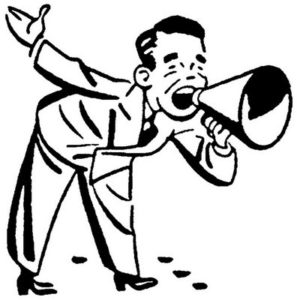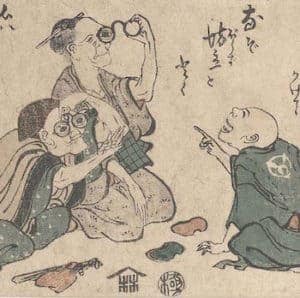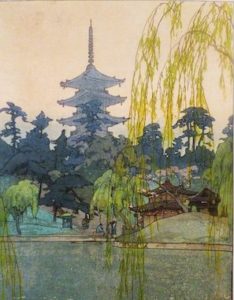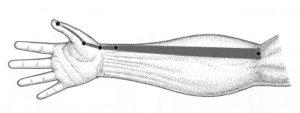Questioning answers
Sometimes I need a little help. I’ve spent a lifetime looking for answers, constantly upending rocks, searching in the back of closets, digging into my own shadowy mind and sorting through the rubbish of thoughts, beliefs and the spaces in my soul that I imagine others see clearly, but that are cloaked and hidden from me.
I’ve searched for answers, always seeking solutions to quiet the ever-present anxiety that lives somewhere between the breastbone and heart. I’ve hoped searching would lay to rest the constant litany of worry and concern that provides the gravity for thinking.
 I’ve harbored an unhelpful belief that if I had the right answers, then all the pieces of life would fall naturally in place. That there is a finish line to cross in the midst of life that would land me in the promised land of contentment.
I’ve harbored an unhelpful belief that if I had the right answers, then all the pieces of life would fall naturally in place. That there is a finish line to cross in the midst of life that would land me in the promised land of contentment.
Perhaps you, too, have sought answers — only to find they did not provide the get-out-of-jail card you were hoping for.
I’ve come to suspect it’s not about answers, not about having the right bubbles carefully colored in on the standardized test. Instead, it’s about questioning the test and turning a discerning eye to the tyranny of standards. It’s about questioning everything presented as real and true and good — not throwing it all away, but questioning, cultivating an open field of inquiry. Risking that what a first glance seems like a breakdown is perhaps in fact a breakthrough.
Cultivating questions. Opening to the unknown. Allowing for a connection with the part of ourselves that doesn’t know, and is open to a more textured story than the one we usually tell ourselves. How does this happen?
Where do you go to learn good questions? What school teaches the art of asking? How do you wander just far enough off your map of the world to see with fresh eyes?
Here’s one phrase: Tell me more.
Here’s an inquiry: How did you come to this realization? Decide that something is true? How has that affected your life? Your relationships? Your job choices? Spiritual development? Wallet? Sense of self-worth?
How were the choices made and the fears hopefully averted? Were your decisions made from fear, from anger, from loneliness, from curiosity, from an innate trust that life provides — or the fear it doesn’t? How have these questions affected your health? Your habits? The way you connect with others, or don’t? What is shown and what is kept hidden?
Ask more questions.
Listen more.
See what other questions arise.
Treating Macular Degeneration with Acupuncture
A few years ago I heard about some people in Arkansas using acupuncture to stop, and in many cases to some degree reverse, age-related macular degeneration (AMD). When I looked into the reports, I ran into a wall of secrecy, so I wrote it off as not worth pursuing.
Then I heard about an acupuncturist that had worked with a group at Johns Hopkins on a pilot study treating Retinitis Pigmentosa. The study showed some promising results and the acupuncturist also was offering treatments to help with macular degeneration. I picked up the man’s books, which basically had the same things to say as the books I had in Chinese on ophthalmology. The information was helpful in a way, but nothing that really stood out.
Then earlier this year I met Mats Sexton, a fellow who was treating AMD with acupuncture, and I interviewed him for my Everyday Acupuncture podcast. He’d been more tenacious than I was when contacting the folks in Arkansas, and as a result he has spent the past 10 years helping people either significantly slow down the slide into blindness or, in many cases, restoring some degree of visual acuity.
Macular degeneration comes in two types, wet and dry. The dry version is due to the build up little plaques in the macula, which is the portion of the retina associated with the center of our visual field. It’s responsible for focus, color and spatial perception. Over time, these plaques obstruct our vision. There is no conventional medical treatment for dry macular degeneration other than recommending vitamins, fish oil supplements and good nutrition.
The wet version occurs due to the bursting of tiny blood vessels in the retina, which then bleed into the macular and obscure vision. It’s like a mini stroke in the back of the eye. This version is treated with monthly injections of Avastin or other drugs that block the growth of blood vessels.
While both types of AMD can respond positively to acupuncture, the dry version is easier to treat. Wet AMD is more problematic, and usually we prescribe herbs to help stop the bleeding. The treatment is more complicated with older patients who might be on blood thinners.
Of course, there are lifestyle changes that patients can implement that over time can help with vision. Obviously, good nutrition is important and moving every day also is helpful, as AMD can be seen as a circulatory disease.
While it is impressive that acupuncture can help people with AMD, please keep in mind it is not magic. As with any chronic degenerative condition, AMD requires a long-term course of treatment. Acupuncture will not “fix” the problem in a one-and-done treatment, but it can be used as part of an overall wellness plan to slow down or stop the progression of the disease. In many cases, it may restore some visual function.
Listen to the podcast I did with Mats Sexton, who has a wealth of experience and knowledge. He’s located in Minneapolis, so if you wanted a course of treatment, he is not far away. I’m also happy to help you with AMD. Give me a call at the clinic for more information or to set up an appointment.
A Few Words From the Soapbox:
Let’s stop blaming women for being female
 Warning: rant ahead.
Warning: rant ahead.
Sometimes experiences show up in my clinical work often enough that I question the status quo on certain issues that have to do with health and healing. I realize I have strong opinions about these. Lately the news cycle has emphasized sexual harassment of women. I think women are treated unfairly in other ways, as well.
Let’s stop blaming women for being female. Let’s put to rest this issue about a woman’s “hormonal nature” being the source of her wild and untamed emotions.
Women get blamed for their hormones being out of balance. Too often we medicate them with synthetic hormones in the form of birth control pills or prescribe Lexapro, Paxil and Xanax in an attempt to settle them down. We gaslight them — and then blame them for feeling crazy. We set up impossible expectations of beauty, and then sell an endless parade of products that promise to bridge that impossible-to-overcome differential.
And then there is this myth about the stable, steady emotions of men. Ha! We also have our emotional expressions, but they don’t get tagged as problematic. Let’s have a look at this.
Who starts the wars in this world? It’s rarely women. Who is responsible for the majority of spouse or child abuse? Which gender turns to suicide by a factor of over three times? Men. Who gets into fisticuffs more often? Shoots up schools or opens fire on a crowded venue? Again, it’s us guys.
Don’t tell me men are more emotionally stable. We are the ones that die more frequently from heart disease because of the difficulty we have with our feelings. The emotional expressions of men don’t get tagged as a problem to be medicated or “therapized” away.
It’s unfair – and untrue — to say that when women hit menopause they turn bitchy because their hormones are unbalanced. Instead, maybe they finally hit that point where they decide to stop putting up with the sexist absurdities they’ve endured for decades. Maybe they’ve simply found their voices and started using them. And maybe the rest of us should stop and listen.
So often we are looking for the magic bullet, the smoking gun, the defective gene, the chemical imbalance or other molecular abnormality that explains why we feel the way we do. Sometimes, of course, there are imbalances that require attention. But let’s also consider that sometimes when we reach a breaking point, something is indeed broken. And it’s not you. It may be your relationship, your opinion about yourself or the solutions you’ve found to past problems that have now transformed into your new challenges.
I’ve found, at least in my practice, that the number of women put on mood meds by their OB/GYN’s far outnumbers the prescriptions written by psychiatrists or general practitioners. I’m fed up with women being medicated because they “have teenagers at home.” In short, I’m fed up with women being medicated because they are women.
Men don’t suffer this kind of discrimination. And a blind eye gets turned towards our particular styles of emotional expression. I think it is high time we stop with this nonsense about men being more emotionally stable. It’s not true. It’s just that we get a free pass on our outbursts, while women get a tranquilizer.
Rant over. We return you now to our regularly scheduled program.
DIY Acupuncture: the lung channel
In Chinese medicine, the fall season is associated with the lung. Not surprisingly, in autumn many people experience their first cold of the season or get a dry cough with this shift in seasons that brings both dryness and cold.
The lung is seen as the “tender organ.” Dryness inhibits its function of expansion and contraction, not unlike a hinge that gets squeaky if not kept oiled or lubricated. This leads to the build up of phlegm and congestion, which further inhibit proper lung function.
There are a few things you can do in this season to keep your lungs healthy.
First, avoid icy cold fluids — go for warm ones. Even just drinking your water warm, instead of chilled, can help. And you’ve probably noticed that at this time of year you naturally gravitate toward tea and other hot drinks anyway.
As the outside air gets dry and we turn the heat on inside, our lungs naturally dry out a bit and the fluids in them thicken as a result. That’s where that dry cough with a bit of phlegm stuck in your throat comes from. Consider moistening the air in your home with a humidifier.
Finally, you can pay attention to your lung channel. If it is congested, do a bit of self-massage on it on a daily basis. How do you know if the channel is congested? If you run your thumb along the lung channel and it’s sore, then it could use a bit of self-massage love.
The image above maps out the lung channel, which is located on the thumb side of the inner forearm. Those with lung issues, allergies or coughs will easily find some tender spots.
Take a few minutes every day to massage these sore areas to help strengthen your lungs, reduce chest congestion and give a general boost to lung function. That’s how to keep your respiratory system strong and healthy this fall.
sonder
n. the realization that each random passerby is living a life as vivid and complex as your own—populated with their own ambitions, friends, routines, worries and inherited craziness—an epic story that continues invisibly around you like an anthill sprawling deep underground, with elaborate passageways to thousands of other lives that you’ll never know existed, in which you might appear only once, as an extra sipping coffee in the background, as a blur of traffic passing on the highway, as a lighted window at dusk.





